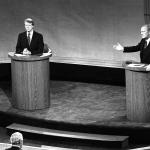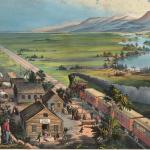It’s time for one of my favorite semesters for books! Every four semesters I teach what is probably my favorite class at Baylor, a graduate course entitled “Women, Gender, and Sex in American Religious History.”
For one thing, it is the most fun thing to answer at a party when someone asks what you are teaching this semester. For another, I love thinking through these ideas with smart people for an entire afternoon once a week.
I also enjoy the opportunity to stay up on new work in this area. Each time I teach the course, I rotate about one-third of the books. I’ve written about the 2022 course newbies and the 2020 course newbies before. (Hence this should really have “Part 3” in the title, but Patheos reduced the number of characters for titles since my earlier posts!)
So, without further ado, here are the three “newbies” for the 2024 iteration of the course:
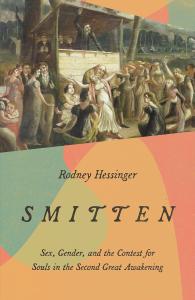 Rodney Hessinger, Smitten: Sex, Gender, and the Contest for Souls in the Second Great Awakening (Cornell University Press, 2022)
Rodney Hessinger, Smitten: Sex, Gender, and the Contest for Souls in the Second Great Awakening (Cornell University Press, 2022)
I am obsessed with early nineteenth century religious communitarian groups (think the Shakers, the Oneida community, and early Mormons, among others). I am equally obsessed with how different historians approach them, group them, and contextualize them. Hessinger places these groups within the context of “enthusiasm,” the controversial emphasis on high emotion within many religious movements of the time—and its easy slide into romance and sex.
Kristy L. Slominkski, Teaching Moral Sex: A History of Religion and Sex Education in the United States (Oxford University Press, 2021)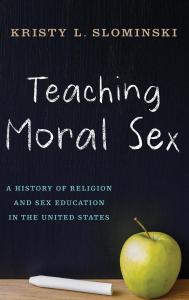
I am a historian of gender, religion, and education so this book hits my sweet spot! It shows how religious actors contributed to the rise of sex education, often assumed to be fundamentally secular. Slominski examines the role of a variety of different religious traditions including various mainline Protestants, evangelicals, Jews, Catholics, Quakers, and Unitarians. This diversity plus the book’s coverage of the entire twentieth century makes it a useful throughline for discussing the history of the changing relationship between American religion and sexual beliefs and practices.
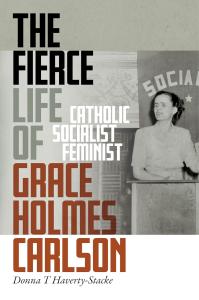 Donna T. Haverty-Stacke, The Fierce Life of Grace Holmes Carlson: Catholic, Socialist, Feminist (New York University Press, 2021)
Donna T. Haverty-Stacke, The Fierce Life of Grace Holmes Carlson: Catholic, Socialist, Feminist (New York University Press, 2021)
I like to assign at least one biography per term. It’s particularly illuminating to consider how an author integrates a subject’s religious faith into her life as a whole. I also find that biographies are an excellent opportunity to do a deep dive into the experience of an American woman outside the Protestant mainstream. I particularly like biographies of people who don’t fit in boxes: Carlson identified as a Christian Marxist feminist. Specifically, she was a psychology professor and politician who subsequently resigned from the Socialist Workers Party in the early 1950s when she concluded it conflicted with her Catholic faith. She nevertheless maintained many of her left-wing political commitments.
I look forward to reading and discussing these additions with my students!


